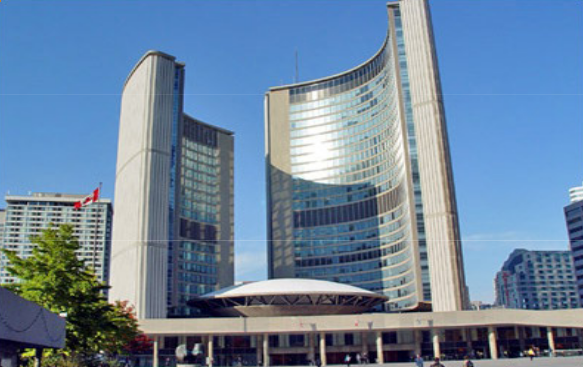What’s coming up next week at Toronto City Hall? Drug decriminalization, a vacant home tax, Bloor-Yonge Station expansion, the Parliament Slip, and more.
Tag: taxes
Hot Take: Private parks set a perilous precedent
Look. I love nature and public space and all, but parks funded by private donors set a very bad precedent.
First, it reinforces the idea that parks are “extra”, not something that the City itself should invest in. It makes the creation of new parks (and the resources allotted to them) dependent on the whims of wealthy donors and not solid urban planning principles. It’s unpleasantly reminiscent of local improvement charges, i. e. rich homeowners paying to spruce up their own neighbourhood.
I’m afraid this will continue to marginalize places that aren’t tourist hotspots, scenic landscapes, or up-and-coming neighbourhoods. Not every park can be as exciting as the Don Valley or Rail Deck Park or whatever they’re calling Under Gardiner. Not every park has to be. Parks shouldn’t just be attractions people visit on special occasions, like the zoo. They should also be a part of everyday life.
Green space is an urban amenity as essential as libraries and clean water. Aside from parks’ importance for health and the environment, they are valuable in their own right as public space. They’re places where you can loiter, sleep, relax, exercise, cool down, picnic, socialize, drink covertly, collect beer cans…all without having to buy anything. For many city dwellers, parks are our backyards.
Public-services-as-philanthropy leaves less glamorous needs by the wayside. Currently playground equipment is only replaced every 30 years (up from 60). Not to mention other things than parks, as Danny Brown notes on Twitter. No one is donating to reduce the TTC or TCHC SOGR backlog.
The whole thing is part of a larger trend towards valuing public services only insofar as they make money. Financial worth may seem more tangible, but it is not the only kind of worth. There are many things—public transit, parks, and more—whose value can’t be measured in dollars. They should not have to turn a profit. People freaking love parks and libraries. It should be possible to fund them sustainably, by increasing the City’s main source of revenue—property taxes—instead of relying on occasional windfalls.
In this pared-down vision of city government, services that cannot pay for themselves must be shuffled off to beneficient private donors, corporations, charities, or non-profits. It’s not because these things would be better off in someone else’s hands. It’s just an attempt to make it Someone Else’s Problem. “Screw you, I got mine.”
It’s a small, mean, insular way of thinking and I hate it. Enough said.
Refined from Twitter. Thanks to Ed Keenan for the shout-out!
Let’s Read: Toronto’s Long-Term Financial Direction
For years, the City of Toronto has been deliberately taking in less revenue while expanding infrastructure and services. Forget the “efficiency” bullshit—this has largely been made possible through unsustainable and unreliable funding sources. In this new report, top City bureaucrats warn City Council that they can’t postpone tough decisions any more.
Here’s the full report. It’s like 40 pages. Are you gonna read it? Hell, no! So here’s the gist.
Continue reading Let’s Read: Toronto’s Long-Term Financial Direction
The Cheat Sheet: September 30 City Council
City Council returns after its summer break, and there’s a lot to cover on the agenda. Read about Toronto’s response to the Syrian refugee crisis; taxi clusterfuck; Gardiner clusterfuck; new shelter standards; and more. Did I miss something? Let me know. Continue reading The Cheat Sheet: September 30 City Council
Financial Facelift: Debt doubts cast shadow for world-class city with major expenses
Toronto chose to put low taxes ahead of infrastructure and services, but it has put her in a bit of a bind. She is 181 years old and has diverse thriving industries, a vibrant cultural scene, and well-loved municipal services like parks and libraries.
She has several major expenses, ranging from large-scale capital projects to everyday service improvements, all of which she wants to pay for without raising taxes or going into debt. As the nation’s economic hub, Toronto has substantial earning power — but she chooses to take in less revenue than she could. Continue reading Financial Facelift: Debt doubts cast shadow for world-class city with major expenses



